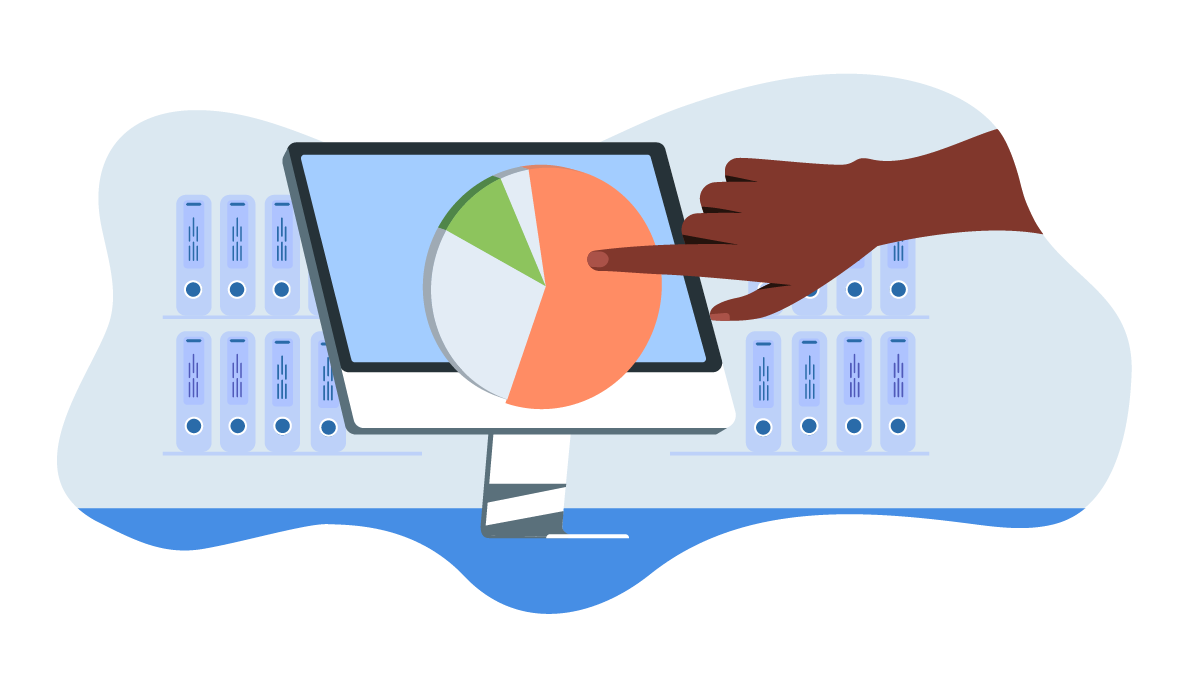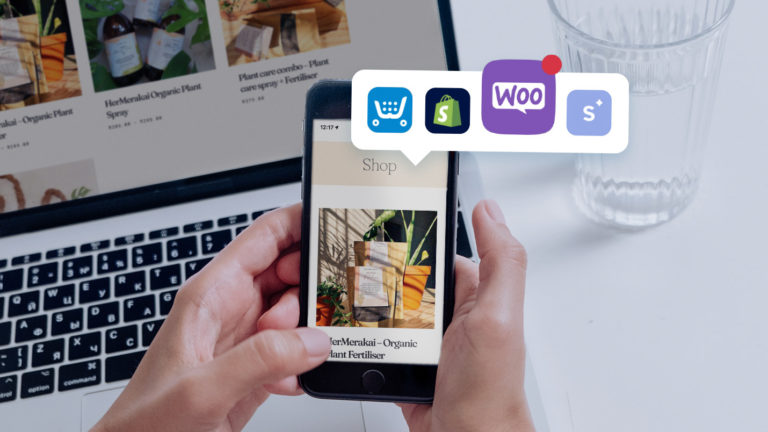16 (mostly) free online tools that’ll help you grow your small business

Nicky
20 January, 2022
Every small business has to watch its bottom line while making its product a success. It’s a constant balancing act of investing in your vision without overextending yourself and possibly making new problems that need fixing.
Luckily, the internet is full of useful resources that can add value to your business without breaking the bank.
I’ve put together a list of some of the best online tools you can use to grow your small business and organised them into the following categories:
The best part is, almost all of these online tools are either free to use or free to trial, so you can see if they’re suitable for your business, totally risk-free.
Research
For any small business, information is key. Especially information about your market and your customers. Smart decision-making can make or break a business, and the smartest decisions are always the ones that are backed by good data. That’s where these online tools come in.

Think With Google
Think With Google is a powerful (and free) online tool specifically designed to help businesses make better decisions. It uses Google’s comprehensive analytics to track consumer and market trends to give businesses insights into what customers are interested in, making it an essential tool for developing sound plans and strategies.
Facebook Insights
Facebook Insights gives you aggregated information about the kinds of people connected to your business through Facebook and Instagram. This free online tool will help you focus your content to reach an even wider audience. Get information like age and gender breakdowns, education levels, job titles, hobbies, interests and more.
Survey Monkey
Survey Monkey offers quality survey templates to help you create professional surveys. The first level of SurveyMonkey is free, but if you need more options, check out their paid packages. SurveyMonkey also offers detailed reporting to help you get the most from your data.
Budgeting
From tracking expenses to running reports, the right budgeting software can increase your business’ efficiency and streamline your workflows if properly integrated into your company accounting and financials.

FreshBooks
Designed for business owners on the go, FreshBooks is a great basic budgeting tool that works through a browser or mobile device. Create and view estimates and efficiently control your budget with their expense tracking system. Their Lite package is well-priced, and comes with unlimited expense entries, custom invoices, and other smart functionality.
Read more: A guide on invoicing for small businesses
QuickBooks
QuickBooks can automate virtually all of your financial tasks, from invoicing and billing to sorting out expenses and reporting. Plus, the user-friendly dashboard will let you easily track your budget. QuickBooks comes with pricing options, with the most affordable package giving you all the key functionality you’ll need to successfully budget for your small business.
MoneyVersity
If all of this talk of budgeting is a bit intimidating, it might help to revisit some money management basics. Old Mutual created MoneyVersity, a personal finance tool with practical courses, videos, and a range of other content specifically designed to help small business owners master their money. All the content is free. Plus, there’s even a free demo for a quick overview of what’s on offer.
Marketing
For any small business, marketing is crucial. It’s even more important not to waste it. Knowing which tools to use can help you get the most bang for your buck. The right online tools will also help your brand get noticed by the right people.

Mailchimp
Email marketing achieves, on average, the best results of all digital marketing channels, and should be a part of any small business strategy. Mailchimp easily lets you manage email lists, schedule campaigns, and analyse their impact. It’s an ideal choice for any size business. The free package allows you to send 10 000 emails per month and have 2000 contacts.
Read more: 6 tips for the perfect email marketing strategy
Grammarly
Owning a small business means doing many things that don’t come naturally. Like writing. Whether it’s emails, a newsletter or your social media posts, Grammarly is a free tool that will help you write better. It easily integrates with a number of apps and tools to correct any mistakes as you go while giving you tips to improve your writing.
Canva
Now, what about design? Canva is a fantastic graphic design tool for anyone who’s not actually a designer. Much like with writing, you want your marketing to look professional, and Canva lets you do exactly that. With tons of templates and quality graphics available, you can create posters, presentations, social media posts, emailers, blog graphics, and so much more. They have a great free version, with cost options for more features.
Wix
Create, design, and manage your web presence precisely the way you want with Wix. The platform has 100s of free templates for landing pages and one-page websites, and a website builder with drag-and-drop features. It’s mobile-ready, and provides web hosting and domain names. Easily add extra functionality like galleries or an online store to bring your business to life. Try their free website builder with no credit card required.
Read more: 4 easy-to-use ecommerce platforms you can use to build your online store
Project Management
To reach your business goals, you need to have a handle on your resources and workflows. This will give you the insight and confidence to make quick decisions if things aren’t going according to plan. That’s where effective project management comes in. Use these online tools to improve your workflows.

Qlutch.com
Develop marketing objectives, plans, and campaigns like a professional marketer with Qlutch.com. It’s a one-stop shop for how-to guidance on the most common business projects. Learn how to create and write a marketing plan, develop a launch strategy, design a brand strategy, and calculate marketing ROI. Qlutch is free when working online, but downloading plans come with a fee.
Buffer
Buffer is a social media management platform built to simplify the process for business owners. Plan your campaigns better, and maximise your performance by learning when, what, and how often to post on your social platforms. Buffer also lets you connect to all your accounts at once, making it easier to create and schedule posts. Their free plan lets you add three social media channels, and gives you access to basic publishing tools.
Read more: How to use Instagram to sell your products
Todoist
Whether you’re looking to organise yourself or your team, Todoist gives you the confidence that everything’s on track, no matter where you are or what device you use. Get a clear overview of everything on your plate and easily add, prioritise and even delegate tasks. Try their starter package for free!
Analytics
After investing time, effort and budget into marketing your business, you’ll want to know whether you’re getting the right results. Try these powerful online tools to monitor your online traffic, and find ways to improve what you’re doing.

Google Analytics
Google Analytics is a free tool that helps small businesses understand the impact of their marketing, and gain insights into their web traffic. Learn how many people came to your website, where they came from, how long they stayed on specific pages, and how well your SEO (Search Engine Optimisation) is performing. Also, pull customisable reports and track the results of your social media campaigns.
StatCounter
StatCounter is a web traffic analysis website that helps you track, analyse, and understand your visitors. Examine traffic trends, track traffic from your paid ads, see how many times a visitor clicks on your links, and set alerts to know when someone returns to your site. Their Basic plan is free for up to 500 page views, and you can try their Premium plan free for 30 days.
Hubspot Website Grader
Hubspot has a great tool that instantly tells you the performance health of your website. Simply type in the weblink and get a breakdown of your site’s overall speed and performance, see how well it is optimised for mobile, and get feedback on your security and SEO. While you’re at it, check out their free website optimisation video course, and get all the insights you need to make your site work even better.
While you’re adding new online tools to your collection, consider adding SnapScan as a payment method. It’s a simple and convenient way to get paid, whether you have a market stall, corner shop or online store. You can also collect and track your payments on the go. It’s free to sign up, and there are no monthly fees. You’ll only pay transaction fees based on your previous months turnover. Find out more about SnapScan and how it can make your business better.
There are many more free small business tools available if you know what to look for. But remember, just because something’s free, it doesn’t mean it’s right for your business.
Finding the right tool requires careful consideration of your goals, processes and resources. For example, you might need to adjust specific workflows or put a resource in place before successfully integrating a new piece of software into your business. That’s when free packages and trials are helpful. They let you evaluate whether something is truly going to add value without any cost or commitment pressure.
Related articles

4 easy-to-use ecommerce platforms you can use to build your online store
Find a platform that suits the needs of your small business.

6 tips for the perfect email marketing strategy
Up your email game and increase your ROI

10 side hustle ideas you can turn into a small business
Use your skills to help you earn some extra income

